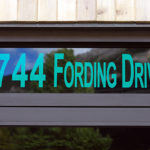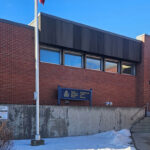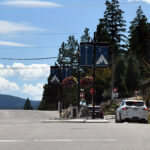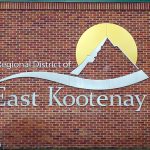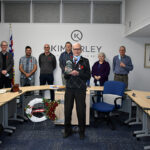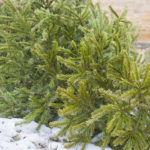Home »

Creston students go Beyond Recycling
Submitted by Wildsight
How can we reduce our waste? It’s a big question to grasp, especially if you’re just a kid. But for students in Beyond Recycling, an environmental education program that runs in Creston schools and throughout the Columbia Basin, this question is the foundation on which learning happens.
Beyond Recycling is a Wildsight-run education program that takes students on a journey to explore their energy, waste, and consumption. Through 24 weeks, students go beyond the 3 Rs to really understand where our waste comes from, where it goes, and how we can make changes to lessen our impact on the planet.
Grade 4-5 students in Blakeny Delcaro and Matt Blick’s classes at Creston’s Adam Robertson Elementary School participated in a Beyond Recycling program this school year under the guidance of Wildsight Educator Melissa Flint. The classes recently had two back-to-back field trips to really dive deep in the programs that make waste reduction a reality in the Creston Valley.
First, the students went to the Creston landfill to get a visceral feel for waste. Perched on a hill above the Kootenay River, the landfill has a bird’s eye view of the river floodplain and is surrounded by agricultural land.
“When you throw stuff away, this is away,” Travis Barrington, Resource Recovery Technician for the Regional District of the Central Kootenay (RDCK), told the students.
In Creston, we produce 7,000 tonnes of garbage a year. As students gazed out the bus at this mountain of garbage, Mr. Blick remarked, “It’s so disturbing to see how much we throw away.”
And this is just for one small community in the Kootenays.
“My job is to keep as much stuff out of the landfill as possible,” Mr. Barrington described as the classes toured the recycling area and the various bins for yard waste, wood waste and metal waste.
Students learned how recycling in BC relies on a concept of producer responsibility: if you are a producer that makes a product with packaging, you are responsible for collecting and managing the material at the end of its useful life. Our province has programs for materials such as plastic, paper, cans, glass, batteries, tires, and motor oil.
RDCK staff talked to students about the almost-completed composting facility at the Creston Landfill, which will divert 25-35% of waste from the landfill once it’s in operation. This will save space in the landfill, reduce how much methane (a harmful greenhouse gas) is produced in the landfill, reduce wildlife attractants at the landfill, and produce compost.
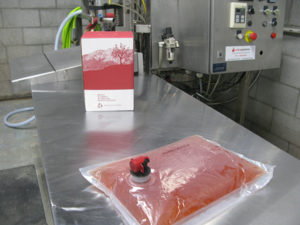 Next for the class was a field trip to the Kootenay Farms Food Hub. This space was just opened a year and half ago and is one of 12 food hubs in BC. Food hubs are ways to help farmers reduce food waste, grow new products and access new markets.
Next for the class was a field trip to the Kootenay Farms Food Hub. This space was just opened a year and half ago and is one of 12 food hubs in BC. Food hubs are ways to help farmers reduce food waste, grow new products and access new markets.
Students learned about local food, reducing their food waste, and growing local economies.
“By taking them to the Food Hub, the students get to see the way that their community is supporting a vibrant local food culture and reducing food waste,” said Flint.
At the hub, we are “reducing the amount of produce going to waste,” Josh Hammermeister, Operations Lead, told the students.
For example, their mobile juice press has been in action for a few years now and has reduced how many less-than-perfect cherries and apples go to the landfill, while providing farmers with another product to sell. The freeze drier has been used to make freeze-dried cherry juice.
“It’s like candy” said Charlie, after tasting it at the end of the tour.
The food hub is also helping farmers distribute their products outside the community. Sometimes producers will only have a bit of product to go out to other communities, but with other producers, together it will make enough to ship together.
Many students made connections from what is happening at the Food Hub to food preservation techniques at home.
“I make jam with my grandma; her peach jam is the best,” shared student Shaela.
Delcaro said that the field trip was a great experience for the class.
“Getting to see a local way that our community is working to reduce our waste was incredibly valuable,” she said.
To learn more about Beyond Recycling, visit www.beyondrecycling.ca
Beyond Recycling couldn’t happen without the generous support of funders, including the Columbia Basin Trust, the Columbia Shuswap Regional District, Natural Sciences and Engineering Research Council of Canada, the Province of British Columbia, the Regional District of Central Kootenay, the Regional District of Fraser Fort George, and TD Friends of the Environment, as well as all the generous individual donors who help make Wildsight Education programs possible.
Photos submitted
